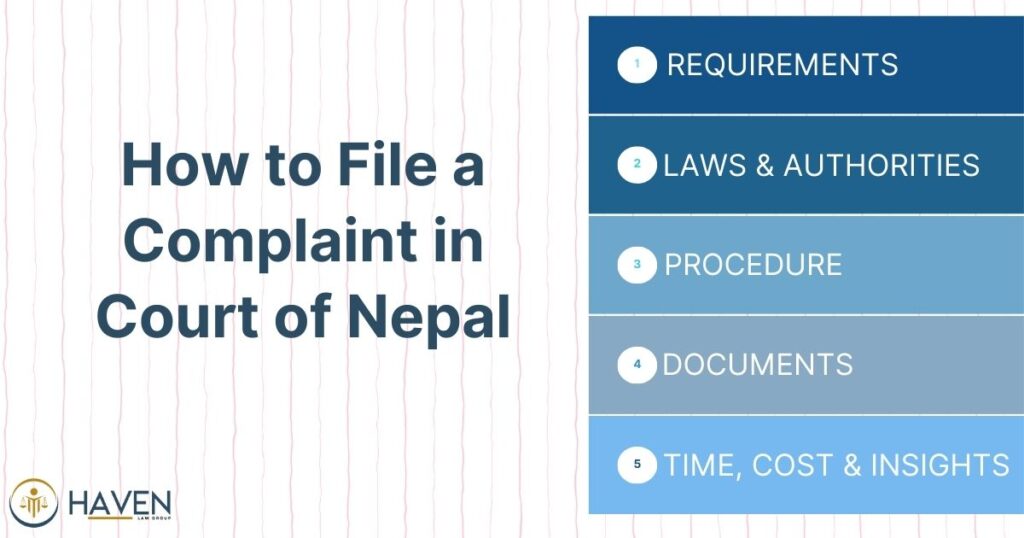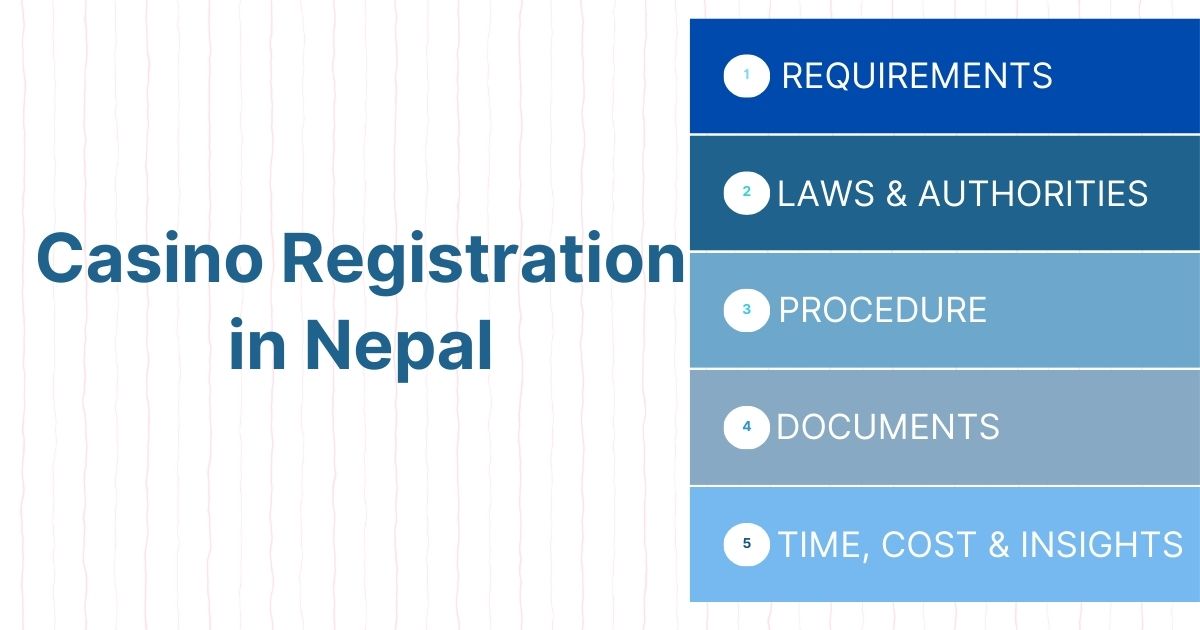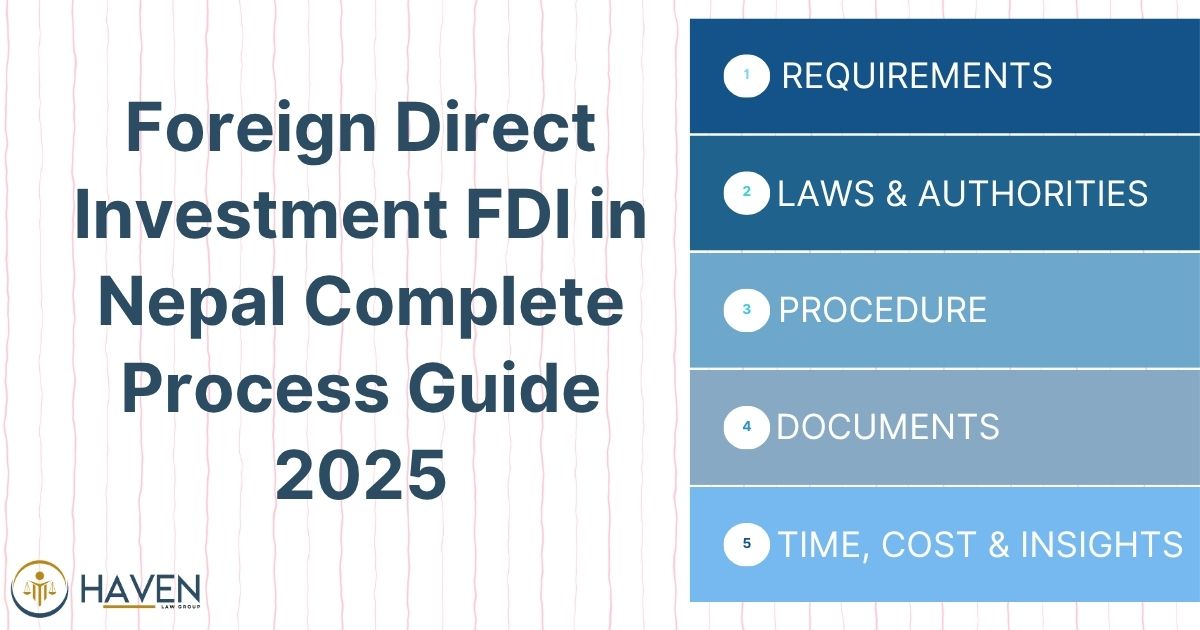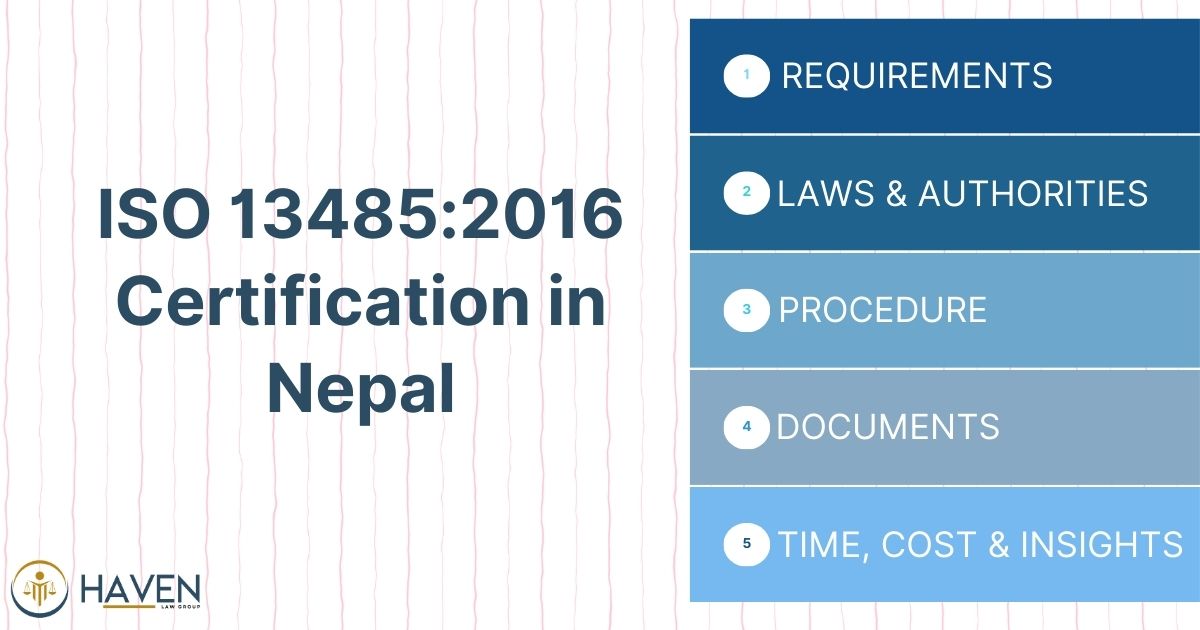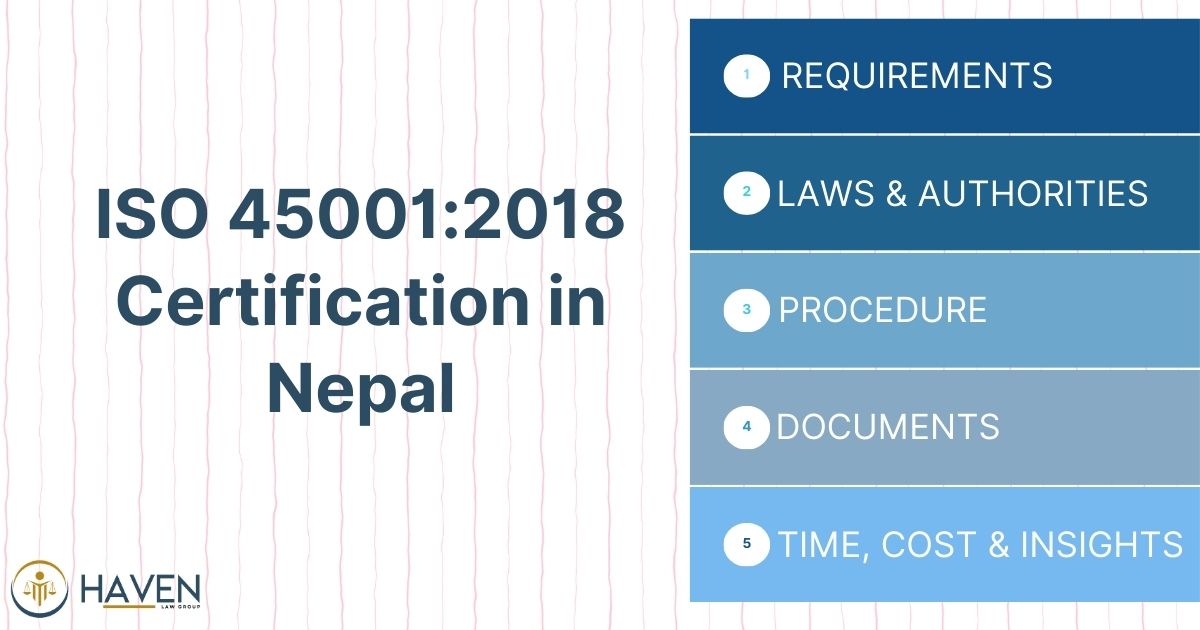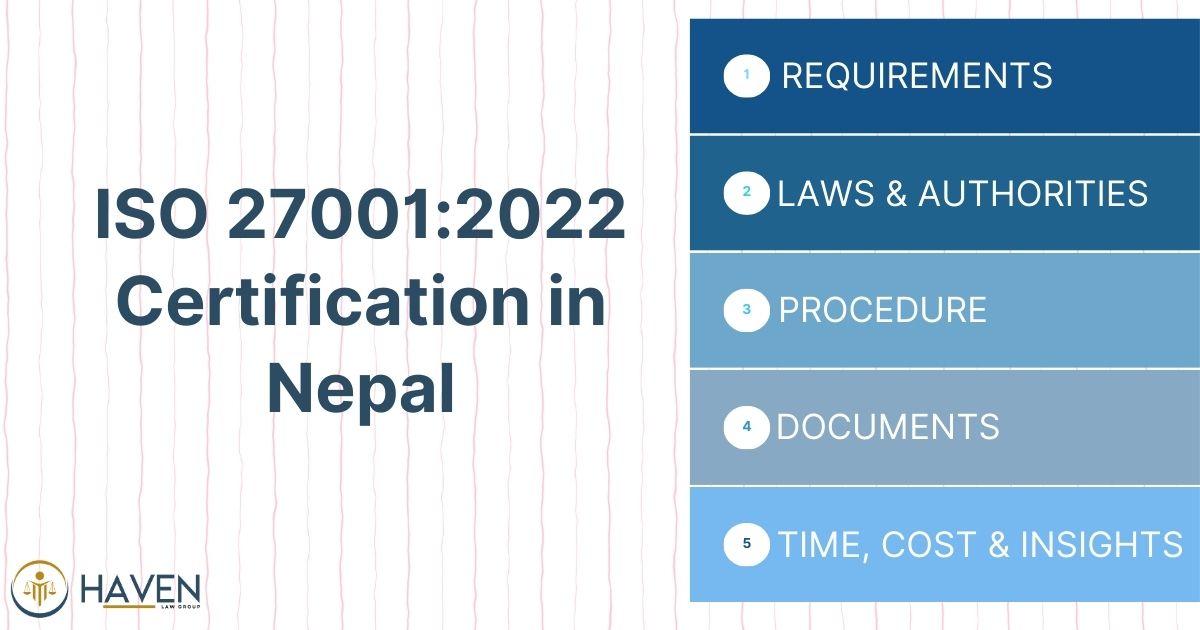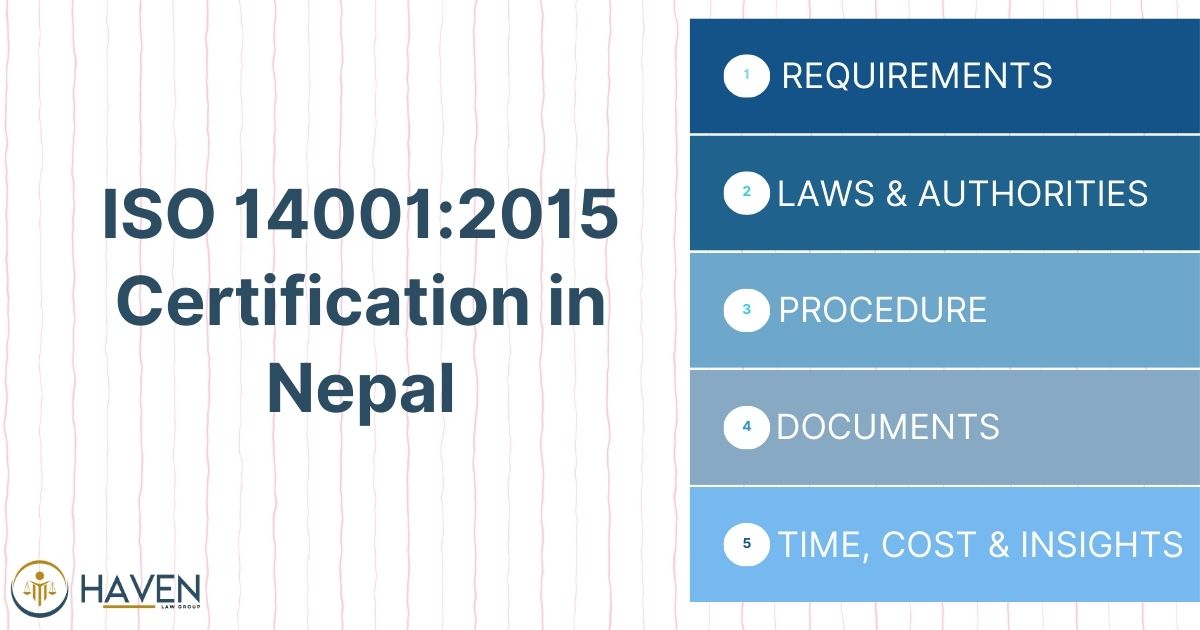Where can complaint be filed in Nepal?
In Nepal, complaint can be filed in various courts depending on the nature and jurisdiction of the case. The primary courts where complaints can be lodged include:
- District Courts: These are the courts of first instance for most civil and criminal cases.
- High Courts: Located in each province, they handle appeals from District Courts and have original jurisdiction in certain matters.
- Supreme Court: The apex court of Nepal, it has both original and appellate jurisdiction.
Additionally, specialized courts such as Labor Courts, Administrative Courts, and Juvenile Courts also accept specific types of complaints. The choice of court depends on the subject matter, geographical location, and monetary value of the dispute. It’s essential to file the complaint in the appropriate court to ensure proper handling and jurisdiction.
What documents are required for court complaints?
To file a complaint in a Nepali court, several documents are typically required:
- Complaint petition (written in the prescribed format)
- Evidence supporting the complaint (documents, photographs, etc.)
- Citizenship certificate or identification proof of the complainant
- Power of attorney (if filed through a legal representative)
- Relevant contracts or agreements (if applicable to the case)
- Police report (for criminal cases)
- Stamp duty receipt
- Court fee receipt
- Any previous court orders related to the case
- Affidavits from witnesses (if applicable)
- Certified copies of relevant documents
The exact requirements may vary depending on the nature of the case and the specific court. It’s advisable to consult with a legal professional or the court clerk to ensure all necessary documents are prepared and submitted correctly.
Can complaints be filed without a lawyer?
Yes, complaint can be filed without a lawyer in Nepal. This process is known as “pro se” litigation, where individuals represent themselves in court. The Constitution of Nepal 2015 and the Civil Code 2017 allow individuals to file complaints and represent themselves in court proceedings.
However, while it’s legally permissible, it’s often challenging due to the complexities of legal procedures and terminology. Self-representation may be more feasible in small claims or simple civil matters. For complex cases or criminal proceedings, it’s highly recommended to seek legal counsel.
Courts in Nepal provide some assistance to self-represented litigants, including:
- Providing basic information about court procedures
- Offering standard forms for certain types of complaints
- Explaining general legal requirements
Despite this, self-representation can be risky, especially if the opposing party has legal representation. It’s always advisable to at least consult with a lawyer before deciding to file a complaint without legal assistance.
What is the procedure for criminal complaint in Nepal?
The procedure for filing criminal complaint in Nepal involves several steps:
- Report the crime to the police: File a First Information Report (FIR) at the nearest police station.
- Police investigation: The police will investigate the complaint and collect evidence.
- Charge sheet preparation: If sufficient evidence is found, the police prepare a charge sheet.
- Filing in court: The public prosecutor files the charge sheet in the appropriate court.
- Court registration: The court registers the case and issues a date for the first hearing.
- Summons to the accused: The court issues summons to the accused to appear.
- Plea recording: The accused enters a plea of guilty or not guilty.
- Trial proceedings: The court conducts the trial, hearing witnesses and examining evidence.
- Judgment: The court delivers its verdict after the trial concludes.
For certain offenses, individuals can directly file complaints in court without going through the police. These are known as “private cases” under Nepali law. The Muluki Criminal Procedure Code 2017 outlines the specific procedures for different types of criminal complaints.
Can complaint be filed in any language?
In Nepal, the official language for court proceedings and documentation is Nepali, as per the Constitution of Nepal 2015 and the Administration of Justice Act 2073 (2016). However, there are provisions for linguistic diversity:
- Complaint must generally be filed in Nepali.
- If a complainant doesn’t speak Nepali, they can seek assistance from a court-appointed translator.
- In areas with a predominant non-Nepali speaking population, local languages may be used with court permission.
- The Supreme Court of Nepal has ruled that courts should accept petitions in English in certain cases, especially those involving international elements.
For documents originally in other languages:
- Certified translations into Nepali must be provided.
- The original document should be attached along with the translation.
- The court may require verification of the translation’s accuracy.
While efforts are being made to accommodate linguistic diversity, it’s advisable to file complaints in Nepali or seek professional help for translation to ensure proper understanding and processing by the court.
How long does it take to register a complaint?
The time taken to register a complaint in Nepali courts can vary depending on several factors:
- Type of case (civil or criminal)
- Completeness of the complaint and supporting documents
- Workload of the court
- Complexity of the case
Generally, the process can take:
- Simple cases: 1-3 working days
- Complex cases: Up to 7-10 working days
Factors affecting registration time:
- Document verification
- Court fee calculation and payment
- Initial scrutiny by court officials
- Assignment of case number and bench
The Civil Procedure Code 2017 and Criminal Procedure Code 2017 mandate courts to register complaints promptly. However, practical constraints can lead to delays. To expedite the process:
- Ensure all required documents are complete and accurate
- Pay court fees promptly
- Follow up regularly with the court registry
It’s important to note that registration is just the initial step. The actual hearing and resolution of the case may take much longer, depending on the nature of the complaint and the court’s caseload.
Are court fees required for filing complaints?
Yes, court fees are required for filing complaint in Nepali courts. The Court Fee Act 2017 (2073 BS) governs the fee structure:
- Fees vary based on the type of case and the value of the claim.
- For civil cases, fees are often calculated as a percentage of the claim amount.
- Criminal cases may have fixed fees or vary based on the nature of the offense.
- Some cases, like public interest litigation, may have reduced or waived fees.
Fee payment process:
- Calculate the fee based on the case type and value.
- Pay the fee at the court’s designated bank or counter.
- Obtain a receipt for the payment.
- Attach the receipt to the complaint petition.
Exemptions and reductions:
- Certain categories of litigants (e.g., indigent persons) may qualify for fee waivers.
- Some public interest cases may have reduced fees.
- Government cases often have different fee structures.
It’s crucial to accurately calculate and pay the court fee, as incorrect payment can lead to rejection or delay in complaint registration. Court officials or legal professionals can assist in determining the correct fee amount for specific cases.
Can complaint be filed online in Nepal?
Online filing of complaint in Nepal is still in its early stages and not universally available. However, efforts are being made to digitize court processes:
- The Supreme Court of Nepal has initiated an e-filing system for certain types of cases.
- Some High Courts and District Courts are piloting online case management systems.
- The COVID-19 pandemic has accelerated efforts towards digital court services.
Current status of online filing:
- Limited to specific courts and case types
- Often requires in-person verification after online submission
- Not available for all types of complaints
Steps for online filing (where available):
- Register on the court’s online portal
- Fill out the digital complaint form
- Upload scanned copies of required documents
- Pay court fees online (if the facility is available)
- Submit the complaint electronically
- Receive a confirmation number
- Follow up with physical submission of documents as required
While the move towards e-filing is progressing, the majority of complaints in Nepal still require physical filing at the court. It’s advisable to check with the specific court or consult a legal professional to determine if online filing is available for your particular case.
Is a police report necessary for court complaint?
The necessity of a police report for court complaints in Nepal depends on the nature of the case:
For criminal cases:
- A First Information Report (FIR) filed with the police is typically required.
- The police investigate and prepare a charge sheet, which is then filed in court.
- Some offenses allow direct filing in court without a police report (private cases).
For civil cases:
- Generally, a police report is not required.
- Exceptions include cases involving public order or safety.
Scenarios requiring police reports:
- Most criminal offenses under the Muluki Criminal Code 2017
- Cases involving violence, theft, or property damage
- Matters of public security or order
Cases not requiring police reports:
- Most civil disputes (e.g., contract breaches, property disputes)
- Family law matters (divorce, child custody)
- Commercial litigation
It’s important to note that even in cases where a police report isn’t mandatory, having one can strengthen the complaint. In some instances, the court may direct the police to investigate after a complaint is filed. Always consult with a legal professional to determine the best course of action for your specific case.
What happens after filing a court complaint?
After filing a complaint in a Nepali court, several steps follow:
- Case Registration: The court assigns a case number and registers the complaint.
- Initial Scrutiny: Court officials review the complaint for completeness and jurisdiction.
- Summons Issuance: The court issues summons to the defendant/respondent.
- Defendant’s Response: The defendant files a written response or appears in court.
- Preliminary Hearing: The court may hold an initial hearing to clarify issues.
- Evidence Submission: Both parties submit evidence and witness lists.
- Main Hearing: The court hears arguments and examines evidence.
- Judgment: The court delivers its decision.
- Appeal Period: Parties have the right to appeal within specified timeframes.
The exact process may vary depending on the case type and court. The Civil Procedure Code 2017 and Criminal Procedure Code 2017 outline specific procedures for different cases. It’s important to follow court instructions and attend all hearings to ensure proper progression of the case.
Are there deadlines for filing complaint in Nepal?
Yes, Nepal has specific deadlines, known as statutes of limitations, for filing complaints:
Civil Cases:
- General civil matters: 35 days from the cause of action
- Contract disputes: 2 years from breach
- Property disputes: 6 months to 35 years, depending on the nature of the claim
Criminal Cases:
- Most serious crimes (murder, rape): No time limit
- Other criminal offenses: Generally 20 years, but varies by offense
Specific deadlines:
- Defamation: 35 days from publication
- Employment disputes: 90 days from termination
- Consumer complaints: 1 year from transaction
The Muluki Civil Code 2017 and Muluki Criminal Code 2017 provide detailed timelines for various types of cases. Missing these deadlines can result in the complaint being time-barred and rejected by the court. In some exceptional cases, courts may extend deadlines if valid reasons are provided. It’s crucial to be aware of and adhere to these timelines when planning to file a complaint.
Can complaint be withdrawn after filing?
Yes, complaints can be withdrawn after filing in Nepali courts, but the process and implications vary:
Civil Cases:
- Plaintiffs can withdraw complaints at any stage before judgment.
- Court permission is required for withdrawal.
- Withdrawal may have cost implications.
Criminal Cases:
- Private complaints can be withdrawn with court permission.
- State-prosecuted cases require prosecutor’s consent for withdrawal.
Process for withdrawal:
- File a withdrawal application stating reasons.
- Pay any prescribed fees.
- Attend hearing on the withdrawal application.
- Obtain court order allowing withdrawal.
Implications of withdrawal:
- May bar refiling of the same complaint (res judicata).
- Could affect future legal rights related to the case.
- May result in cost orders against the withdrawing party.
The Civil Procedure Code 2017 and Criminal Procedure Code 2017 provide specific provisions for complaint withdrawal. It’s advisable to consult a legal professional before deciding to withdraw a complaint to understand the full legal implications.
FAQs
1. Is legal advice mandatory?
Legal advice is not mandatory for filing complaints in Nepali courts, but it’s highly recommended, especially for complex cases. While individuals can represent themselves, professional legal guidance can significantly improve the chances of a favorable outcome and ensure compliance with legal procedures.
2. Can complaints be rejected?
Yes, complaints can be rejected by Nepali courts for various reasons:
- Lack of jurisdiction
- Incomplete documentation
- Failure to pay court fees
- Time-barred complaints
- Lack of legal standing If rejected, the court typically provides reasons, allowing for correction and refiling if possible.
3. Are affidavits necessary?
Affidavits are often necessary in Nepali court proceedings, especially for:
- Verifying facts stated in the complaint
- Supporting witness statements
- Providing additional evidence The requirement for affidavits depends on the nature of the case and specific court rules. They must be sworn before a notary public or authorized court official.
4. Can complaints be appealed?
Yes, complaints that result in unfavorable judgments can be appealed in Nepal:
- District Court decisions can be appealed to High Courts
- High Court decisions can be appealed to the Supreme Court Appeal deadlines vary but are typically 30-70 days from the judgment date. The right to appeal is subject to specific legal provisions and case nature.
5. Are forms available online?
Some standard forms for court complaints are available online through the Supreme Court of Nepal’s website and some District Court websites. However, availability is limited and varies by court and case type. It’s advisable to check with the specific court or consult a legal professional for the most up-to-date and appropriate forms for your case.
What is the process to file a complaint in court in Nepal?
To file a complaint in a Nepali court:
1. Draft a written complaint
2. Gather supporting documents
3. Pay court fees
4. Submit complaint to court registrar
5. Receive date for initial hearing
What documents are required to file a complaint in a Nepali court?
Documents typically required:
1. Written complaint
2. Evidence supporting your case
3. Citizenship certificate
4. Power of attorney (if using a lawyer)
5. Receipts for court fees
Can I file a complaint in court without a lawyer in Nepal?
Yes, you can file a complaint without a lawyer in Nepal. However, it’s advisable to seek legal counsel, especially for complex cases, to ensure proper procedures are followed and your rights are protected.
How much is the court fee to file a complaint in Nepal?
Court fees vary based on the case type and claimed amount. For exact fees, consult the court’s fee schedule or inquire at the court registry. Fees may range from a few hundred to thousands of rupees.
What types of complaints can be filed in Nepali courts?
Nepali courts handle various complaints including:
1. Civil disputes
2. Criminal cases
3. Family matters
4. Property issues
5. Contract breaches
6. Constitutional cases
7. Administrative disputes
How long does it take for the court to process a complaint in Nepal?
Processing time varies depending on case complexity and court workload. Simple cases may take a few months, while complex ones can take years. The court aims to resolve cases within reasonable timeframes.
Can I file a complaint online in Nepal?
Currently, Nepal does not have a comprehensive online system for filing complaints in court. You must submit complaints in person at the relevant court. Some courts may offer limited online services for case tracking.

